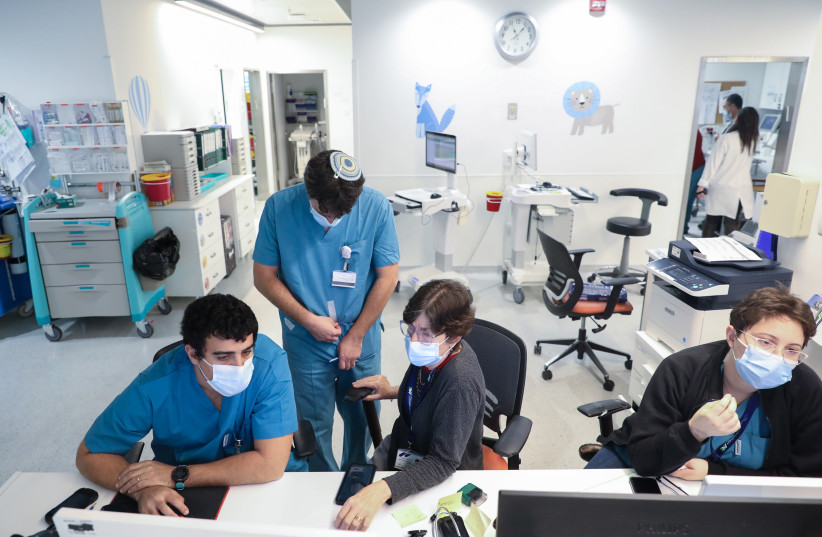Extended waiting times are one of the biggest challenges in the healthcare system and one of the most frustrating for anyone who wants to consult with a doctor but finds that the next available appointment is weeks away Whether it is an appointment with a gynecologist, an ear, nose, and throat doctor (ENT), an eye specialist, dermatologist, or orthopedist, the farther one is from the center of the country, the longer the waiting times, due to the shortage of medical personnel in the periphery. Many despair over the long wait and give up being seen altogether. Others make an appointment that they will eventually skip or turn to private medicine to see a doctor as soon as possible.
Although the number of physicians per capita in Israel has risen over the past decade, it remains below the OECD (Organization for Economic Co-operation and Development) average, and this shortage is expected to worsen as many physicians retire in the coming years.
Last month, the publication of a Taub Center report revealed the grim reality of Israel’s healthcare system. The average waiting time for a specialized medical consultation is between one and three months, which leads to 35% of Israelis forgoing medical treatment, while some turn to private medicine and have to pay out of their own pockets.
Another astonishing statistic is that one-third of the doctors’ appointments are no-shows. All of this has led us to conclude that we must try to find a solution, streamline appointments, and thus significantly shorten patients’ waiting time.
Along with long-term solutions such as increasing the number of medical students to train a new generation of doctors and incentivizing doctors to return to work in Israel after completing their studies abroad, we at Meuhedet have decided to take up the gauntlet with a creative solution based on advanced technology.

Take, for example, someone who suffers from back pain, but the soonest available orthopedic appointment is not for another two months. Having no choice, the patient will make appointments, but their back hurts in the present moment, and they don’t want to wait.
They may contact the director or the secretary of their branch of the kupah (health fund) and ask to be fitted in between appointments or on a less busy day. In such a case, the person manages to get the earlier appointment but, in most cases, will not bother canceling the appointment that was scheduled for two months later.
These canceled appointments are exactly the ones we want to know about in advance, to make them available to other patients who are waiting to see the doctor.
New smart algorithm to address issue
Therefore, we have created a smart algorithm based on advanced cloud technology, which proactively addresses people who are likely not to make it to their appointments. For example, if a person has scheduled an appointment with an orthopedist in two months, but the system has identified that they have already visited an orthopedist, they will now be contacted by an automated system and asked whether they still need the future appointment. If they confirm that they don’t, the system will cancel the appointment.
Through this simple initiative, in just one week, we were able to connect with 12,600 patients, of whom 4,700 confirmed that they no longer needed the original appointment.
Subsequently, can offer thousands of canceled appointments to others who want to move up their scheduled medical appointments. Another algorithm that we have developed allows anyone who makes an appointment on the website or app to register for an appointment shortcut service to define their preferences.
Some may only want to see a specific doctor, while others would be happy to see any orthopedist, for example. For some people, it is important that their appointment be in the city or town where they live, while others are willing to travel to nearby cities. Once you have set your personal preferences, Noach, your personal AI digital assistant, begins scanning the system, searching for available appointments, and sending the options to move the appointment to an earlier date.
This is a win-win situation. Patients can substantially advance their appointments and receive speedy and professional medical treatment, and doctors don’t need to sit idly in their clinics because of no-shows, while other patients wait at home, anxious to see them. The end result is a significant streamlining of the health system and improvement in the availability of appointments for patients.
The writer is the CEO of Kupat Holim Meuhedet. He has served in this position since December 2022.
